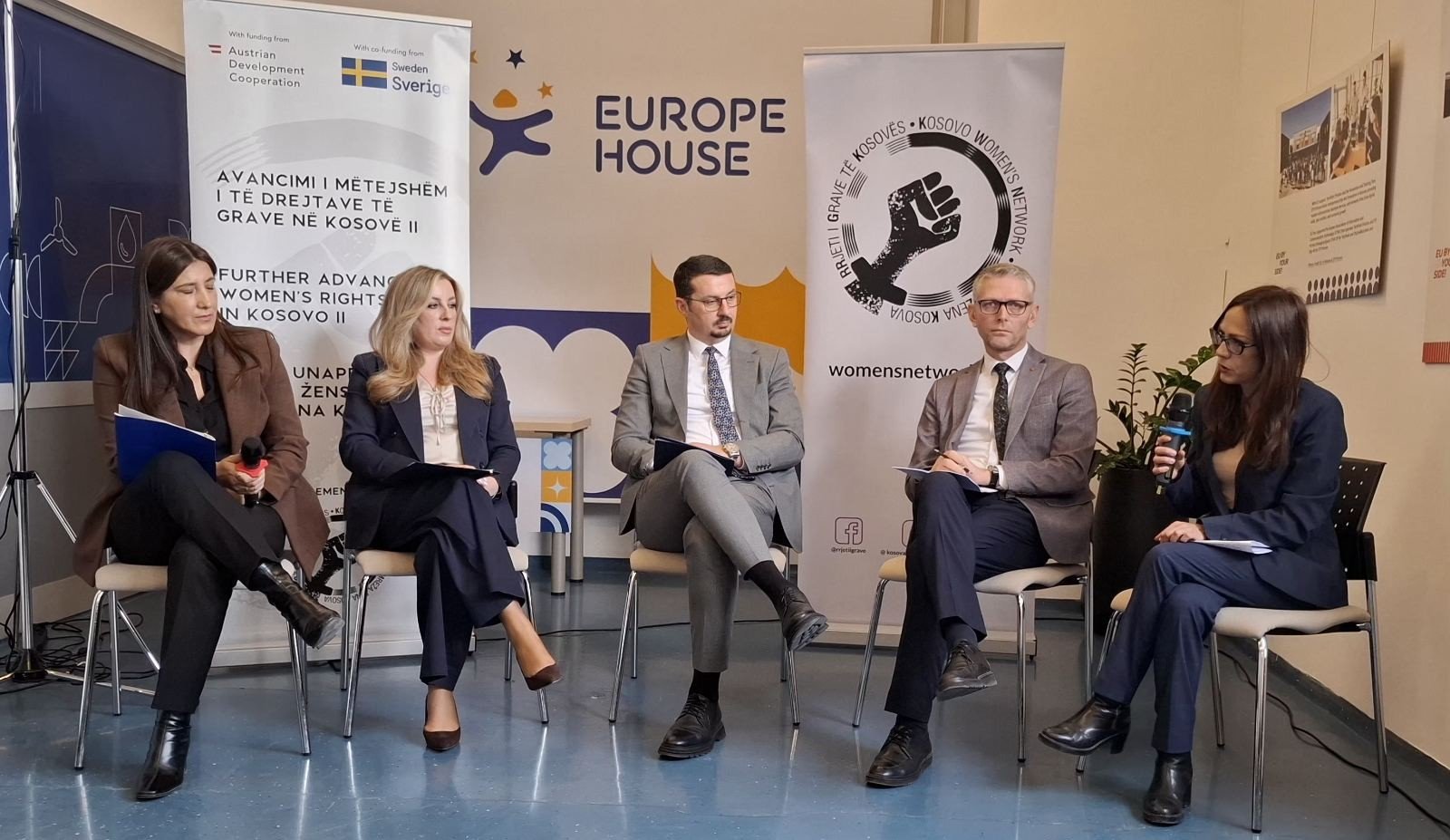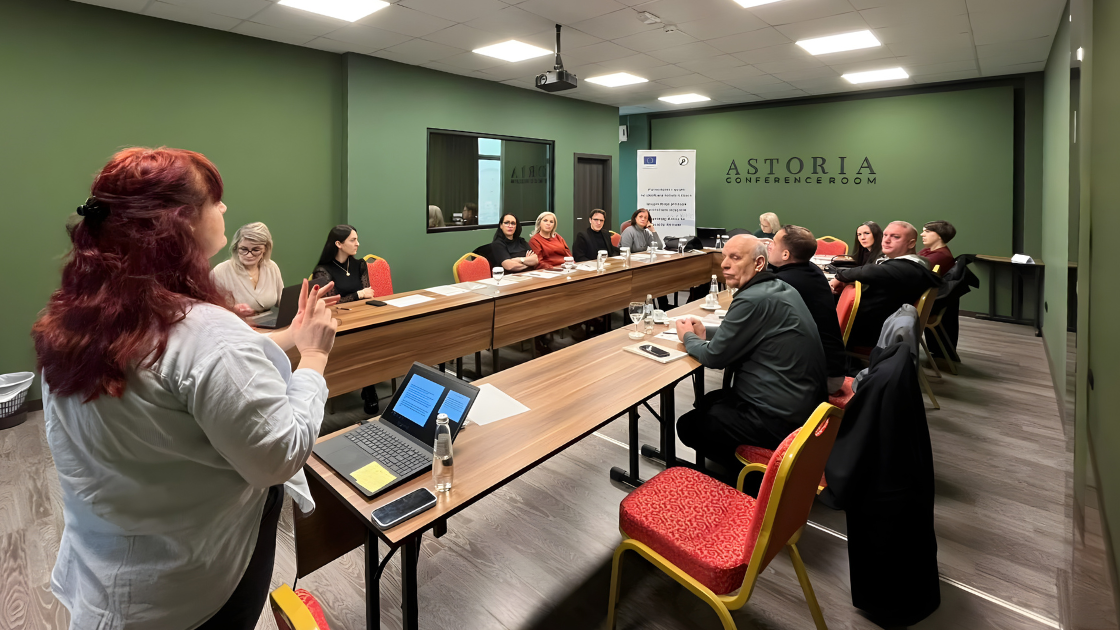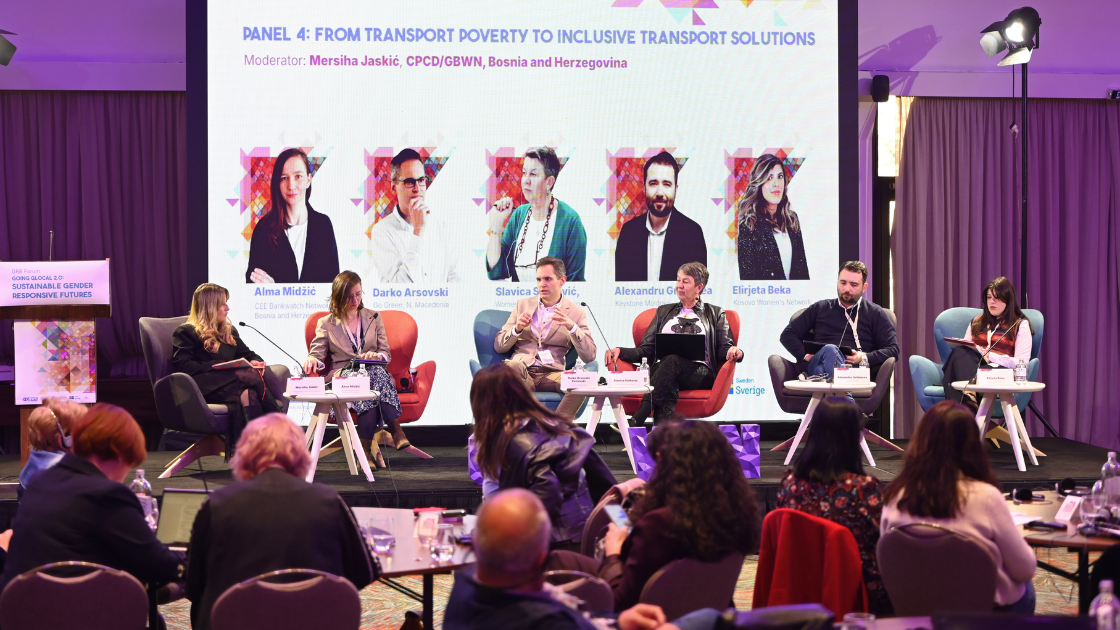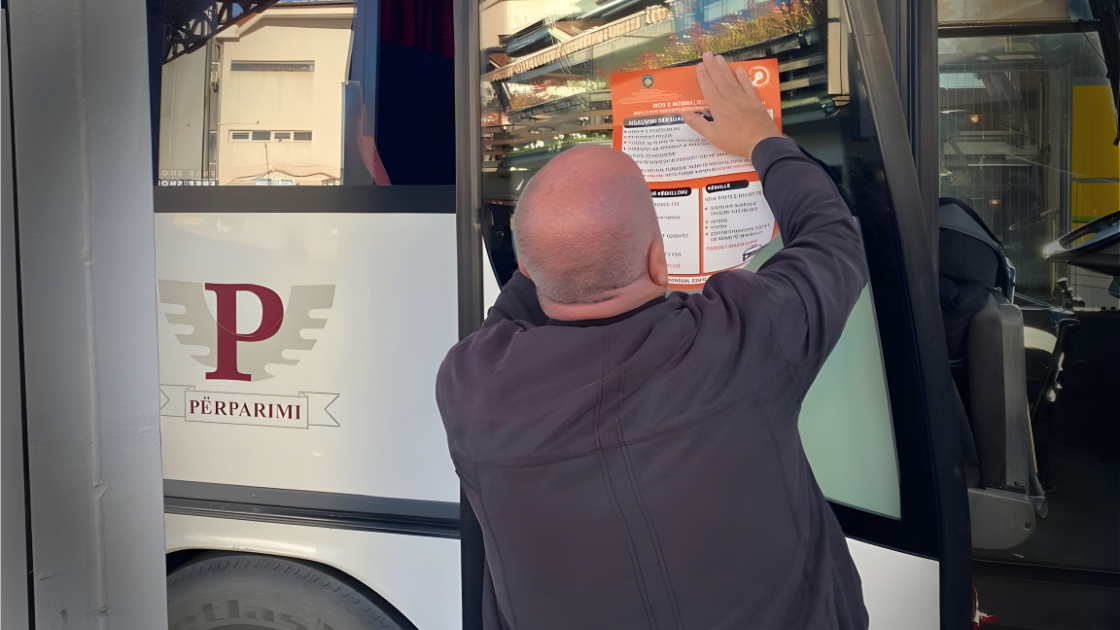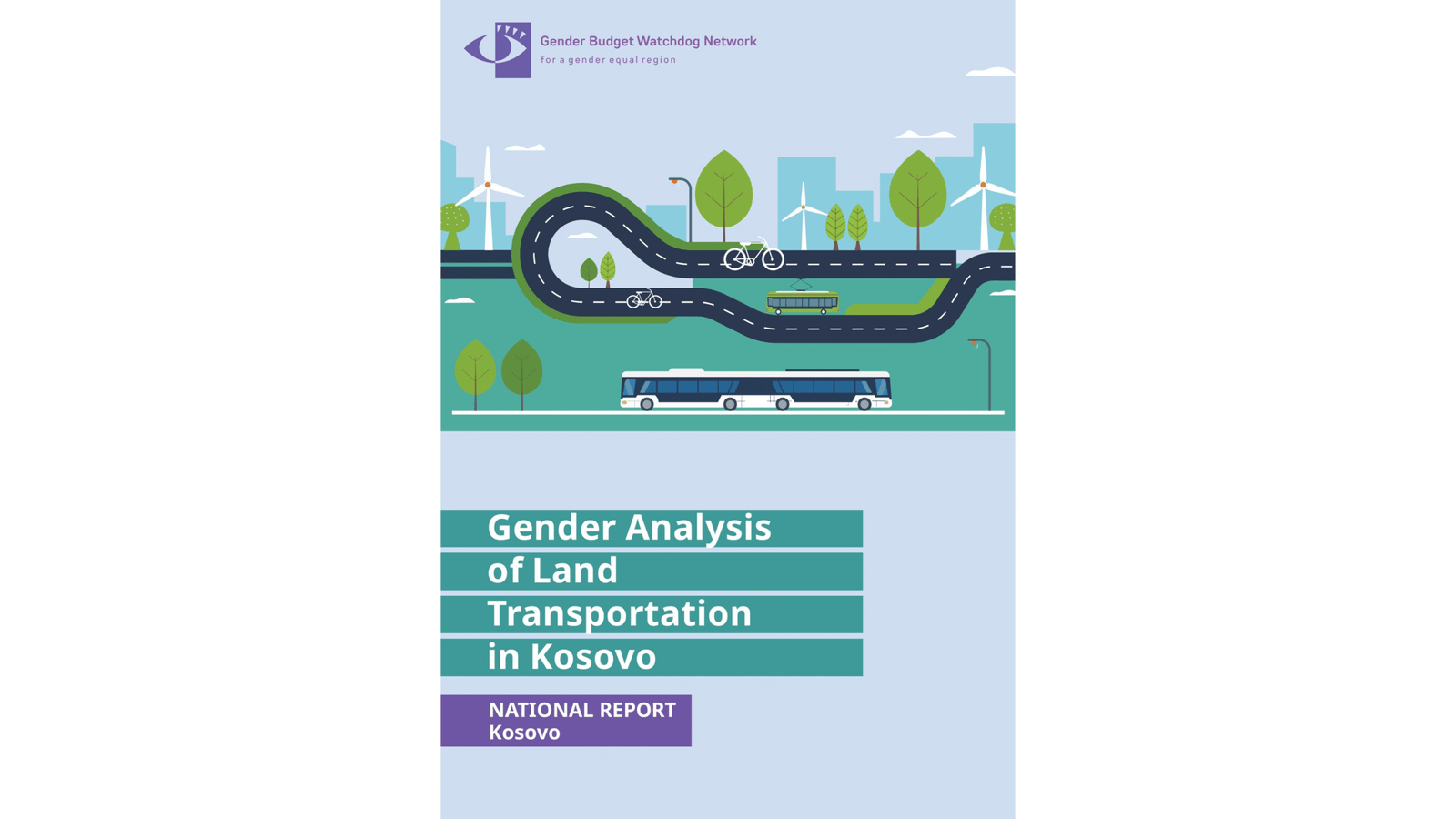Approximately 90 kilometers away from Prishtina lies Krusha e Madhe, a village that evokes memories of the last war in Kosovo and the embodiment of resistance, Fahrije Hoti.
Fahrije’s narrative encapsulates the experiences of countless other women in Kosovo, and her present endeavors serve as a global testament to success. Her resilience has not only inspired many other women but has also fostered a sense of empowerment. The determination she displayed during those challenging times to assert her rights, starting with the fundamental right to work, has become a driving force for women worldwide, urging them never to relent in their pursuit of their rights.
Despite being located far from the center of Kosovo, Fahrija managed to provide crucial support not only for herself but also for numerous girls and women who faced discrimination within society. Through their collective efforts, they were able to attain the rights they rightfully deserved.
Even today, not many women and girls in Kosovo have a fate like Fahria’s.
The non-governmental organizations that deal with women’s rights and their promotion are assessing that the distance from the city centers and the capital of Kosovo is causing women’s work not to be recognized and appreciated as much as it should be.
These NGOs are assessing that the biggest focus of donors is on organizations that are bigger, and usually, these are in urban areas with very little support for rural ones.
From Has of Prizren – with women and for women
It is Marte Prekpalaj from the non-governmental organization “Gratë Vizionare të Shekullit XXI” who, like a few of her colleagues, had the courage to work with women and not center their operations in an urban area. The difficulties are compounded as her work mainly focuses on women in the villages, while the NGO’s center is located in Has of Prizren.
“We are in Has in Prizren. In general, NGOs have their centers in cities. I am one of the rare ones who have their center here in Has, far from the city,” says Prekpalaj.
She, like many of her colleagues, thinks that organizations located in the city, closer to the center, have the easiest job.
However, Prekpalaj still maintains that thanks to her desire to work for the benefit of women, she remains motivated to continue her work and ultimately emerge victorious.
“Even when I applied for projects, I didn’t find it difficult that technology now provides us with opportunities, but the fact that NGOs in urban centers also have resources,” she says.
She also emphasizes that the most significant commitment and work for women are being carried out in cities.
In rural areas, less is being done for women’s rights. Women have knowledge, and they are aware of their rights in most cases due to the numerous information tools currently available. However, the approach to these cases is crucial, and work must be done in this aspect,” Prekpalaj says.
She adds that they engage more with the local government and have a very productive cooperation with them. She also mentions that they are a part of the Kosovo Women’s Network (KWN), and Prekpalaj herself is an active member who collaborates closely with this network.
“We constantly have meetings and collaborate with the members of the KWN,” she adds.
Prekpalaj mentions that such a network has existed for some time among municipalities and other NGOs.
“We cooperated quite well,” recalls Prekpalaj, while also acknowledging that this network has declined. “But now it has deteriorated; the cooperation and networking that we had in the past have also weakened,” she says.
Women’s rights are also a concern in Peja. The non-governmental organization “Alma” told KALLXO.com that among the various challenges leading to the organization’s closure is the concentration of funds in the city, favoring larger NGOs.
“The big NGOs are suffocating us; it’s very straightforward. I’m making an appeal, and I won’t cease until the major NGOs stop absorbing all the funding, leaving the organizations that have been collaborating with them for years on the brink of closure. They are depleting our capacity, taking away our work, and even our volunteers,” says Shemsie Seferi, the head of the Association for the Emancipation of Women “Alma.”
Seferi mentions that she volunteers for large NGOs that primarily focus on urban areas, and in her view, these organizations ultimately reap the benefits of funding.
“This isn’t normal; let’s discuss the reality,” she says.
According to Neri Ferizi, an activist for gender equality, many organizations in small towns are comprised of women who have consistently been dedicated to women’s issues.
“These women continue to be part of these organizations without bringing in new faces to refresh the team. I believe that new women would bring fresh ideas,” says Ferizi.
She adds that if young activists from different areas exhibit diverse behavior, there would be broader representation of women, making the cause more inclusive.
The status of other women’s rights volunteers
The geographical location has an impact on women’s education, their participation in the workforce, and their emancipation. Responses from organizations indicate that this geographical aspect also affects women’s ability to be informed about and advocate for their rights.
Even in Kosovo’s 2020-2024 program for gender equality, it is stated that NGO assessments demonstrate that women from rural areas and those with less formal education have weaker connections with service providers compared to women from urban areas.
In addition to NGOs with women’s rights as their primary focus, there are also several other organizations continuously striving to address this topic.
Research conducted by KALLXO.com revealed that even in the plans of the majority of Local Youth Action Councils and Youth Centers operating in various municipalities throughout Kosovo, both near and far from the capital, there has been a lack of educational activities promoting gender equality in recent years.
One illustrative case that sheds light on the situation in Kosovo is the Local Youth Action Council (KVRL) in Mitrovica. They stated that they have not organized any activities for gender equality in the last three years.
“KVRL Mitrovica is currently in the midst of an election phase. We would like to inform you that we have not conducted such activities in the past three years,” they briefly conveyed to KALLXO.com.
This situation underscores that, despite Mitrovica not being categorized as a small city, given its expansive area exceeding 300 km², its distance from the capital still results in fewer activities related to women’s rights and a reduced presence of NGOs addressing these issues.
KALLXO.com reached out to Neri Ferizi, a women’s rights activist in this city. She emphasizes that in Kosovo, there is still a significant class division based on geographical origin.
“Discrimination based on geographic location is very evident in Kosovo; in Pristina, one can sense a form of superiority,” she states, while also noting that geographic location continues to influence progress and awareness in Kosovo.
According to Ferizi, the efforts of NGOs working on women’s rights in rural areas are recognized to a certain extent.
“This is evident in the support that organizations in Pristina receive and the influence they wield due to their broader reach. Additionally, the historical context of each city varies, and sometimes the challenges and ideas differ. Ideas that can freely develop in Pristina may not be relevant in other cities,” says the activist from Mitrovica.
She suggests that the focus on working for women will now need to shift to other cities in Kosovo.
Support from NGOs operating in rural areas
In 2012, the Kosovo Women’s Network established the Kosovo Women’s Fund. According to the Network, this fund provides small grants to women’s organizations that lack access to other sources of funding and aim to work for women’s rights.
Within this fund, there is a specific allocation for NGOs operating in rural areas, as well as for organizations that focus on marginalized groups. The creation of this fund came in response to changing aid priorities and reduced budgets, which led many donors in Kosovo to either terminate their grant programs or reduce funding for non-governmental organizations.
Smaller NGOs, typically located in cities far from Kosovo’s main centers, and focused on women’s rights, claim they face discrimination. KALLXO.com has reached out to such organizations.
When KALLXO.com inquired with the Ministry of Justice about whether there is discrimination among organizations based on their size, as smaller NGOs have alleged, the Ministry denied any such distinctions.
“The Ministry of Justice does not make such distinctions. Any NGO licensed in the field of social protection and the provision of social services, and that meets the requirements stipulated by the current legislation, will receive support through subsidies from the Ministry of Justice,” stated the Ministry.
On the other hand, concerning the support provided by both the central and local government for women’s NGOs, activist Neri Ferizi notes that there has been a recent increase in support. However, in her view, the need for support is greater in regions outside the capital.
She believes this underscores the inequality in the distribution of funds for NGOs.
Furthermore, it’s worth mentioning that the Ministry of Justice includes the Department for Social Services Policy, which was formerly a part of the Ministry of Finance until December 2022.
In early 2023, the Ministry of Justice, in line with its responsibilities, issued a call for subsidies for NGOs offering social and family services to citizens in need.
For the year 2023, the Government of Kosovo, as stated by the Ministry of Justice, has allocated support to legal entities, specifically NGOs, totaling 500 thousand euros for the period from January to April 2023.
The Ministry of Justice also mentioned that they are currently in the process of securing financial support amounting to 1 million and 500 thousand euros for the period from May to December 2023, extending to February 2024.
Responses from the Ministry of Finance revealed that in 2022, the Ministry of Finance provided financial assistance to organizations amounting to 1 million euros. Out of this sum, 400,000 euros were designated for shelters, while 600,000 euros went to other NGOs offering social and family services.
In 2022, a total of 44 legal entities were supported with this monetary value, including 10 shelters and 34 other NGOs across the country.
Kallxo.com


